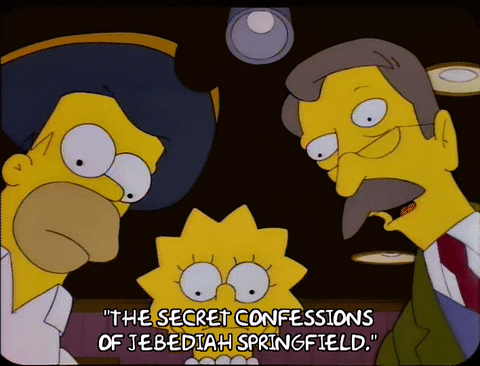When my husband cleared out his grandparents’ house, he ended up with a lot of mementos including his grandfather’s high school swimming ribbons and medals from the Chicago Public Schools city championship meet, then sponsored by the University of Chicago. I hated to throw them away, but I didn’t know what to do with them. On a whim, I contacted the university archivist, and he said that he would be happy to have them.
A few years ago, my mother found some files of my father’s from his time on the Mahoning County Bicentennial Commission. My father had been in charge of getting a monument built to Youngstown, Ohio’s first white settlers: John Young, James Hillman, and Daniel Shehy. The were exploring the area in 1796 with the plan of acquiring land. His papers from that time included drafts of the monument’s design and information about the people who worked on its construction. My mom called the Mahoning Valley Historical Society, and they took all the files.

Following my mother’s death, my siblings and sorted her papers and mementos, and distributed things that that we didn’t want. Family records went to the family’s genealogists. My father’s high school yearbooks and my mother’s nursing school materials went to the county historical society, while my mother’s high school yearbooks and a copy of the 1956 student handbook went to school’s archives. (My father’s high school closed years ago; my mother was in her school’s first graduating class, so her materials were of special interest.)
Given that other people probably have stuff of interest to historians, I emailed Pamela Speis, archivist for the Mahoning Valley Historical Society to find out about what she looks for in donations. “The short answer is that MVHS will consider any artifact/item that is related to the Mahoning Valley for inclusion into the collection,” she said. “The Valley’s stories are what we try to preserve, from all walks of life.” She said that she sometimes has to turn items away if they don’t fit the collection plan, if it is something that the historical society can’t probably care for, or it they already have enough copies. For example, they generally don’t want more than two to five copies of a particular class yearbook.
Speis prefers that people bring items in person so that she can take a look, although that’s not always possible. Donors are asked to sign a deed of gift to give ownership to the historical society.
If you have no ties to Mahoning County, what can you do? “Each organization has its own mission and policies,” Speis said. “The best advice I can give is for folks to contact their local historical agencies to see what they are interested in.”
Local historical societies, libraries, colleges, and universities might be interested in those things that you don’t necessarily care about but that you also hate to throw out. Someone in the future might want to learn about the demographics or curriculum at South High School in the 1950s, you know? Whoever that person is, the Tyler History Center of the Mahoning Valley Historical Society will be happy to help.
I’d love your thoughts.






Good to know--we have some family things that have been languishing, because we don't want to just toss, but can't really use, either.
Thank you so much for this post, Annie. I will follow your advice (and Anna's) when I tackle clearing out a storage room stuffed with family memorabilia.